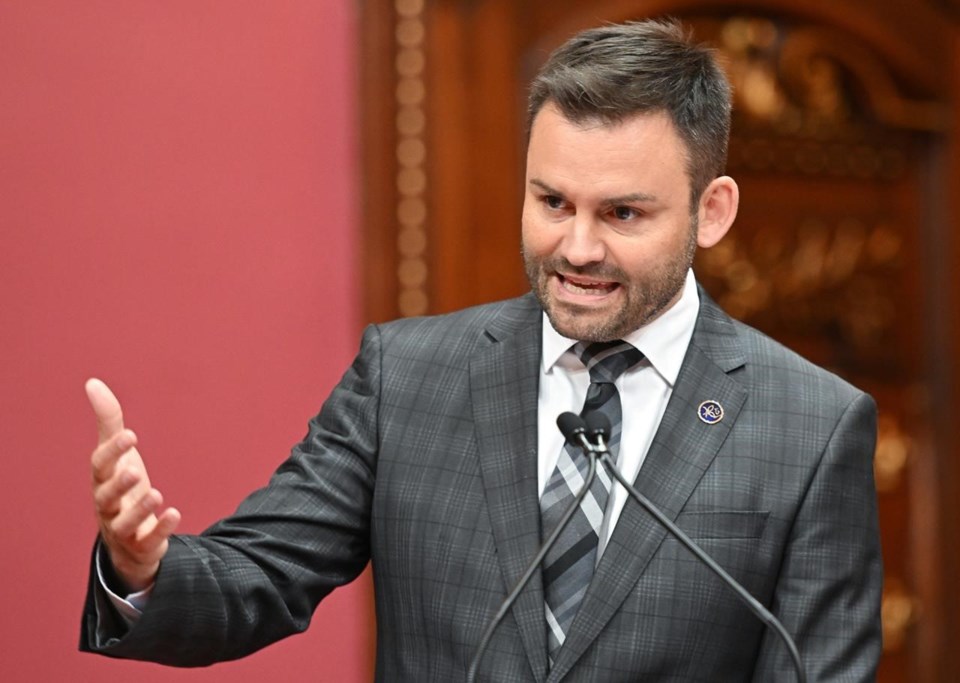QUEBEC ‚Äî The leader of the once-powerful Parti Qu√©b√©cois says he's fighting for his party's "right to exist" after an election result that saw it reduced to just three seats in the provincial legislature.¬Ý
Paul St-Pierre Plamondon has been fighting to have his party granted official status, despite falling short of the threshold, and says he's just asking for the minimum his party needs to carry out its duties when the next session begins on Nov. 29.
Quebec's four main political parties have been negotiating over budgets and legislature speaking time after two parties fell short of the requirements for official party status in October.
The Parti Québécois and Québec solidaire won three and 11 seats, respectively, despite both winning a higher share of the popular vote than the second-place Liberals, who won 21.
Parties who reach the official party threshold of 12 seats and 20 per cent of the vote get more funding, as well as more time to speak in the legislature.
St-Pierre Plamondon says he's willing to back off on a demand that his party be able to name a house leader in order to advance the negotiations and ensure his party is recognized when the legislature resumes.
The PQ leader has been criticized for asking that his party receive equal treatment to other opposition parties with only three seats, but rejects the claim that his party is asking too much.¬Ý
In a phone interview, he insisted his party has been "the least greedy of the three opposition parties," and was being unfairly treated by the others.
"We're asking for the bare minimum to exist in the House," he told The Canadian Press on Friday.
"There is a minimum for functioning which hasn't been granted to us so far."
The Parti Qu√©b√©cois is asking for its budget to be raised to $800,000, from the $495,000 currently on offer.¬Ý
It's also asking to be guaranteed one of the nine daily questions granted to the opposition in the legislature, as well as a seat on the body that makes decisions on the functioning of the legislature.
The Parti Qu√©b√©cois won only three seats despite winning 14.6 per cent of the popular vote. In comparison, the second-place Liberals won 21 seats with only 14.3 per cent of the vote.¬Ý
The Liberal seat count is soon to be 19 after Leader Dominique Anglade announced her resignation and another member left caucus amid conflict with the party.¬Ý
The current model would mean that the Liberals would get 70 out of every 100 questions granted to opposition parties, compared to 25 for Québec solidaire and five for the PQ.
St-Pierre Plamondon said this result shows the "distortion" in the first-past-the-post election system, which doesn't reflect the true desire of the electorate.
This report by The Canadian Press was first published Nov. 20, 2022.
Jocelyne Richer, The Canadian Press




